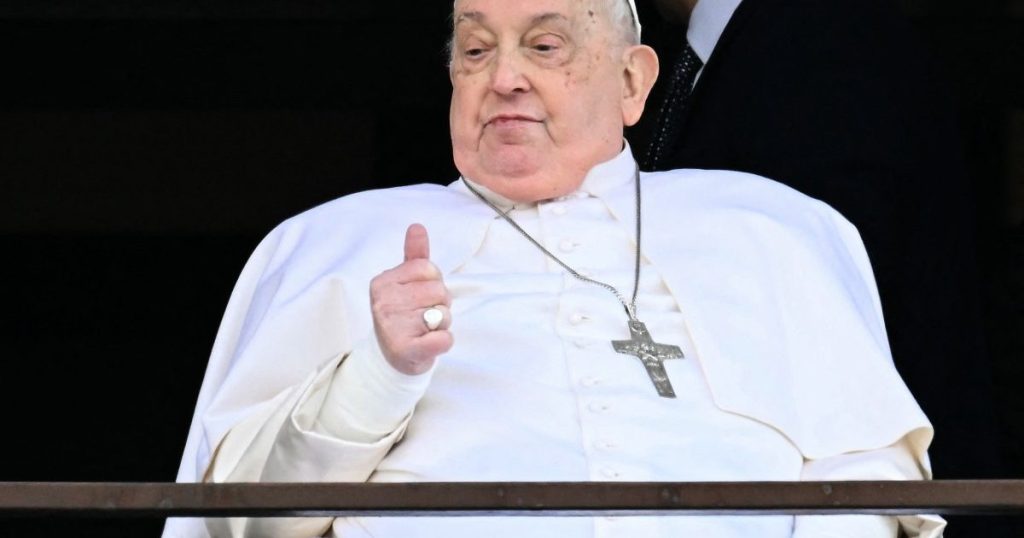The world united in grief on Monday following the passing of Pope Francis, the head of the Roman Catholic Church, at the age of 88. His death, just a day after his Easter Sunday appearance at the Vatican, prompted an outpouring of tributes celebrating his life and legacy. World leaders, religious figures, and ordinary citizens alike mourned the loss of a spiritual leader known for his humility, compassion, and tireless advocacy for the marginalized. Pope Francis’s tenure was marked by a distinct focus on social justice, environmental stewardship, and interfaith dialogue, leaving an indelible mark on the Catholic Church and the global community.
President Bola Tinubu of Nigeria, a predominantly Christian nation, led the tributes, describing the Pope as a “humble servant of God” and “guiding light for millions.” Tinubu’s statement highlighted the Pope’s commitment to serving the Church and his emphasis on recognizing Christ in the most vulnerable members of society – the marginalized, refugees, migrants, and the forgotten. He lauded the Pope’s efforts to bridge religious and socio-economic divides and lamented his passing so soon after his Easter message of hope. The President extended condolences to the global Catholic community, praying for eternal rest for the departed Pontiff.
International leaders echoed Tinubu’s sentiments, emphasizing the Pope’s global impact. French President Emmanuel Macron praised Pope Francis for standing with the vulnerable, while Italian Prime Minister Giorgia Meloni mourned the loss of a “great man.” Indian Prime Minister Narendra Modi called him a “beacon of compassion,” recognizing his deep empathy and humanitarian efforts. Israeli President Isaac Herzog acknowledged the Pope’s significant contributions to interfaith dialogue, emphasizing his efforts to foster understanding and cooperation between different religions. Palestinian President Mahmoud Abbas expressed gratitude for the Pope’s recognition of the Palestinian state, calling him a “faithful friend.” Egyptian President Abdel Fattah el-Sisi echoed the widespread sentiment, describing the Pope as a “voice of peace, love and compassion.”
From Africa to the Middle East, tributes continued to pour in, reflecting the Pope’s global reach and influence. Ethiopian Prime Minister Abiy Ahmed anticipated the Pope’s legacy inspiring future generations, while Kenyan President William Ruto lauded his “servant leadership,” a testament to his humility and dedication to serving others. These tributes underscored the Pope’s consistent message of dialogue, justice, and service, which resonated deeply with leaders and citizens across diverse cultures and backgrounds. The outpouring of grief demonstrated the profound impact of Pope Francis’s papacy, transcending geographical and religious boundaries.
Within Nigeria, the Ministry of Foreign Affairs expressed deep sorrow, recognizing the late Pope as a global moral leader whose papacy was characterized by humility, compassion, and an unwavering commitment to peace and social justice. The Nigerian government acknowledged the resonance of Pope Francis’s advocacy for the poor, refugees, and conflict victims, particularly relevant to Nigeria’s own challenges. His 2022 apology for the Church’s role in colonial injustices, including the historical abuses against Indigenous populations, was highlighted as a significant step towards reconciliation and healing. This gesture further solidified his image as a leader who not only preached compassion but actively sought to address historical wrongs and promote justice.
Religious organizations within Nigeria also joined the chorus of tributes. The Christian Association of Nigeria (CAN), a prominent interdenominational Christian organization, described Pope Francis as a “towering figure of faith” radiating mercy, justice, and love for humanity. While he never visited Nigeria, his impact was deeply felt through his appointments of Nigerian bishops and cardinals, and his unwavering support for interfaith dialogue. CAN emphasized the Pope’s outspokenness against poverty, corruption, and inequality, issues that resonate deeply within Nigeria. His writings, including encyclicals such as Laudato Si’ on environmentalism and Amoris Laetitia on family, were recognized as enduring sources of spiritual guidance. Even within the political sphere, figures like former presidential candidate and governor of Kano State, Senator Rabiu Musa Kwankwaso, mourned the Pope, describing him as a “strong ethical compass” and a profound loss for humanity. This widespread recognition, crossing religious and political divides, speaks to the unifying influence of Pope Francis’s message of humility and service.














